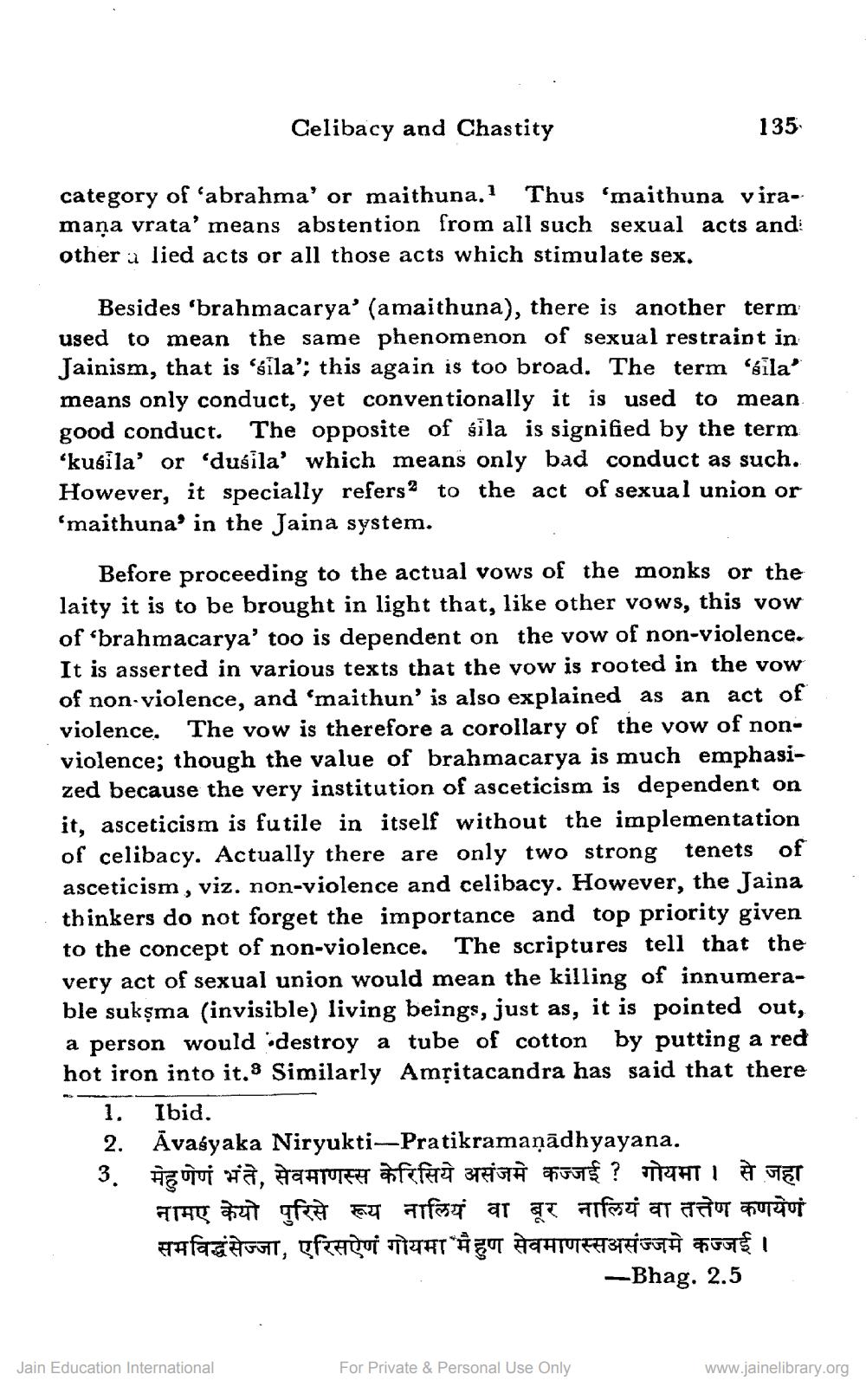________________
Celibacy and Chastity
135
category of 'abrahma' or maithuna.1 Thus 'maithuna viramaņa vrata' means abstention from all such sexual acts and other a lied acts or all those acts which stimulate sex.
Besides 'brahmacarya' (amaithuna), there is another term used to mean the same phenomenon of sexual restraint in Jainism, that is ‘sila'; this again is too broad. The term "sila' means only conduct, yet conventionally it is used to mean good conduct. The opposite of sila is signified by the term ‘kusila' or 'dušila' which means only bad conduct as such. However, it specially refers to the act of sexual union or 'maithuna' in the Jaina system.
Before proceeding to the actual vows of the monks or the laity it is to be brought in light that, like other vows, this vow of 'brahmacarya' too is dependent on the vow of non-violence. It is asserted in various texts that the vow is rooted in the vow of non-violence, and 'maithun' is also explained as an act of violence. The vow is therefore a corollary of the vow of nonviolence; though the value of brahmacarya is much emphasized because the very institution of asceticism is dependent on it, asceticism is futile in itself without the implementation of celibacy. Actually there are only two strong tenets of asceticism, viz. non-violence and celibacy. However, the Jaina thinkers do not forget the importance and top priority given to the concept of non-violence. The scriptures tell that the very act of sexual union would mean the killing of innumerable sukṣma (invisible) living beings, just as, it is pointed out, a person would destroy a tube of cotton by putting a red hot iron into it. Similarly Amritacandra has said that there
1. Ibid. 2. Āvasyaka Niryukti-Pratikramaņādhyayana.
मेहणेणं भंते, सेवमाणस्स केरिसिये असंजमे कज्जई ? गोयमा। से जहा नामए केयो पुरिसे रूय नालियं वा बूर नालियं वा तत्तण कणयेणं समविद्धंसेज्जा, एरिसऐणं गोयमा मैहुण सेवमाणस्सअसंज्जमे कज्जई ।
-Bhag. 2.5
Jain Education International
For Private & Personal Use Only
www.jainelibrary.org




